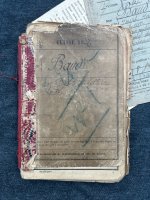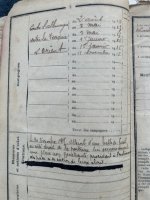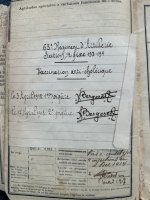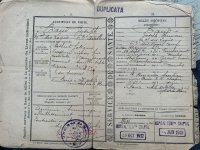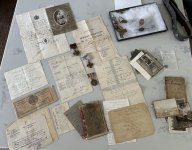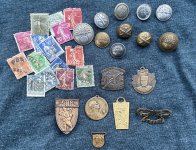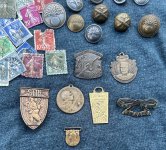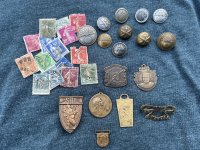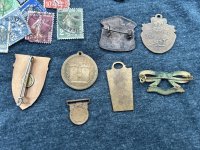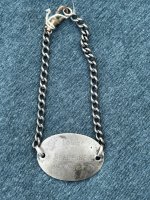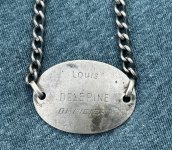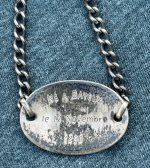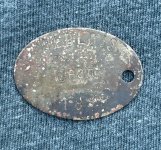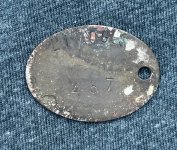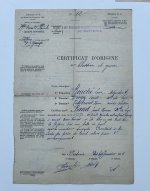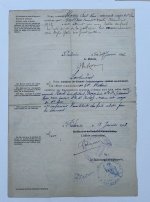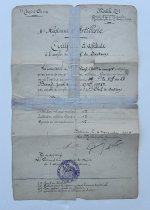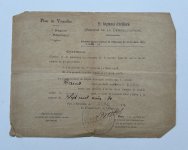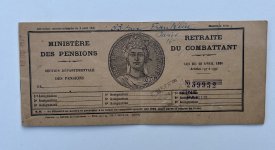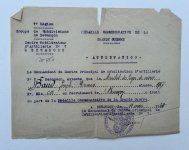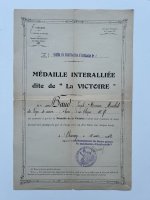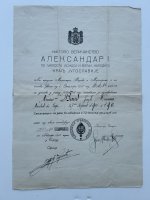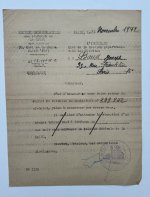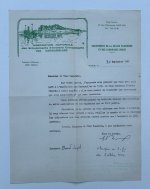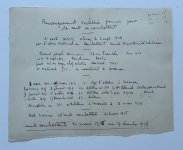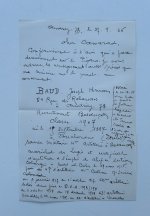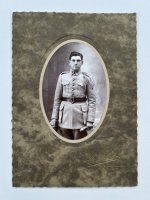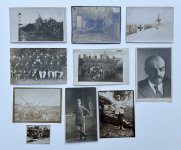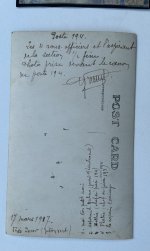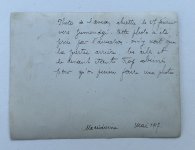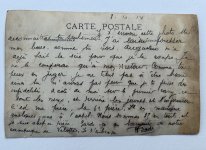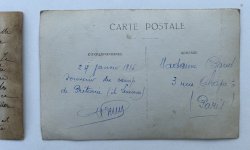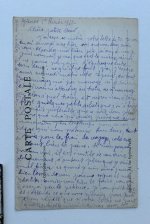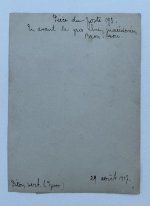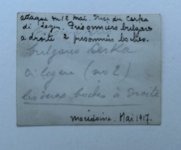You are using an out of date browser. It may not display this or other websites correctly.
You should upgrade or use an alternative browser.
You should upgrade or use an alternative browser.
French Soldiers Identification Book Translation Needed - Large Officers Group And Badges
- Thread starter Torch03
- Start date
Torch03
Member
Thank you Michiel!Vert nice personal set:!I would read the French text as following: 30 december 1915, hit by a gun bullet right side in his belly, which resulted in a penetrating wound with debris in his abdomen from parts of the shelter
Matt
Peter B
Well-known member
Wow that is an awesome collection!Thanks Peter, I picked this book up along with this large Officers document group, photographs, badges, buttons, ID bracelet/dogtags etc...
MattView attachment 62530View attachment 62535View attachment 62536View attachment 62537View attachment 62538View attachment 62539View attachment 62540View attachment 62541View attachment 62542View attachment 62543
Recently picked up this French Soldiers Identification book. Excuse me for my ignorance but what is the proper terminology/what these books actually called?
I was hoping one of our French speaking members might be able to translate/tell me a little bit about this soldier.
Thanks,
Matt
View attachment 62526View attachment 62527View attachment 62528View attachment 62529
Nice find. This booklet is a "Livret militaire".
Pardon me if I make a small correction, Michiel; you were close. "Hit by a rifle bullet on the right side of the chest, causing a non-penetrating wound; he was then proceeding to take the guns of his section out of their shelters".Vert nice personal set:!I
This makes sense as the soldier belonged to an artillery regiment.
Joseph Baud, born in 1887 in Foucherans (Eastern France), was a Marechal-des-Logis (sergeant) at the 63rd Artillery Regiment. He served from the first day of the war (08/02/14) and survived it, but his medical record by the end of 1917 says he was suffering of anemia and physical/nervous exhaustion (they would then hardly talk of "depression"; nowadays he would be probably diagnosed with PTSD).
He fought against Germany, Turkey (Dardanelles, I suppose) and in "armee d'Orient" (Salonique, Balkans?).
He fought against Germany, Turkey (Dardanelles, I suppose) and in "armee d'Orient" (Salonique, Balkans?).
Torch03
Member
Thank You!Joseph Baud, born in 1887 in Foucherans (Eastern France), was a Marechal-des-Logis (sergeant) at the 63rd Artillery Regiment. He served from the first day of the war (08/02/14) and survived it, but his medical record by the end of 1917 says he was suffering of anemia and physical/nervous exhaustion (they would then hardly talk of "depression"; nowadays he would be probably diagnosed with PTSD).
He fought against Germany, Turkey (Dardanelles, I suppose) and in "armee d'Orient" (Salonique, Balkans?).
I'll post the of the group tomorrow for you to take a look/translate.
I really appreciate it!
Hope you have a great night!
Matt
Last edited:
Administrative documents related to his assignments provide details on the scarce information present in the livret militaire: he fought in Dardanelles, Macedonia, and was released from military duty in 1919. More paperwork about pensions, medals, his belonging to veteran associations (the most recent one dated from 1966). A few more personal documents. In a letter to his wife he admits he has grown a goatee but does not mean to look more handsome, and she should not worry he wants to be unfaithful... sweet. A partial picture of a German aircraft they shot down in Feb. 1917. Several pictures at the front with his pals, one with their pet Brou-Brou, a Macedonian dog. There is also a photograph of four prisoners, two Bulgarians and two "boches" (a slang, derogatory, and universal word for Germans in both world wars).
What is remarkable is that he writes perfect French, even though he probably did not receive high education. I could not find a single grammar or spelling mistake in his hand writing. Nowadays many people in France write with their feet and make innumerable errors. High school and even college teachers complain that many students cannot write correct French anymore, as they only use gibberish on cell phones, and hardly read books. A few days ago took place "baccalaureat" in France, the big exam in between high school and university. It was decided that essay readability could not be a ranking criterium anymore... in other words, French spelling mistakes cannot be taken into account in marking.

